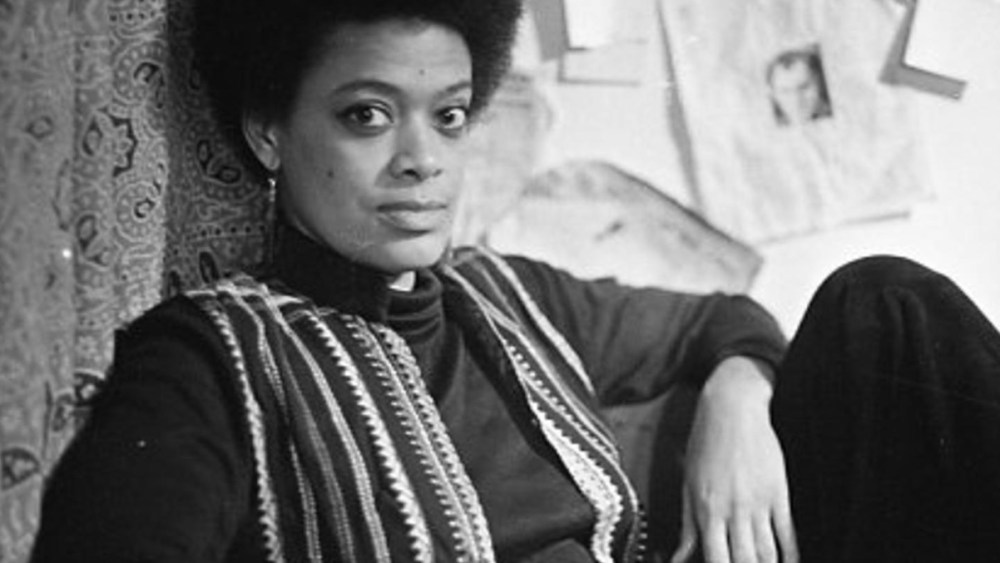In “TCB – The Toni Cade Bambara School of Organizing,” Louis Massiah and Monica Henriquez avoid the trap many directors of biographical films fall into. It’s hard to capture a full life in less than two hours, leading many experienced filmmakers to convey Wikipedia-style highlights instead of crafting a resonant narrative.
Cade Bambara, who wrote fiction (“Gorilla My Love,” “The Salt Eaters”); made documentaries about Oscar Micheaux and W.E.B. Du Bois; and was a prominent activist, literary editor and college professor, has the rich accomplishments that provide such a conundrum. However, Massiah and Henriquez lean into capturing the essence of why Cade Bambara’s life and work matter, making their film an intimate story told by the many people who knew her well and loved her deeply. Thus, the audience gets a lively sense of how it might have felt to be in the presence of Cade Bambara.
The film, which won two documentary prizes at the BlackStar film festival, starts with Cade Bambara’s childhood in Harlem. It moves chronologically through her life at college, how she shaped her independence as a young woman in New York City before becoming an accomplished and respected writer, essayist and filmmaker — or as she called herself “a culture worker.” Ample time is devoted to the seminal 1970 anthology she edited, “The Black Woman,” which included the writing of Audre Lorde, Nikki Giovanni and Alice Walker, reflecting the book’s huge impact on generations of Black female thinkers. The film also captures Cade Bambara’s social and political impact on communities in bustling Black metropolises like Atlanta and Philadelphia, as well as her organizing work outside the United States, before anyone thought to term such work “global.”
But this is not a cradle-to-the-grave biography. In fact, some of Cade Bambara’s major life milestones and key published works are mentioned only tangentially. However, the film’s strength, as the title implies, is that it brings to life a compelling study of how to lead a worthwhile life by making change in one’s community and in the world.
“TCB – The Toni Cade Bambara School of Organizing” uses an arsenal of documentary tools: archival footage, sound recordings, photos and animation. Yet what makes this documentary distinctive is the dynamic way in which these conventional methods are used. All are brought together with the objective of showing Cade Bambara’s singular life while maintaining her humanity and never reducing her to worshipped legend status. After all, as the film shows, she was someone who knew how to live with an abundance of freedom.
The greatest strength on the filmmakers’ side is the selection of people they chose to tell this story: Cade Bambara’s family, students and friends; writers, editors, historians and organizers who crossed paths with her; people who knew intimately. These people also happen to be charismatic, natural storytellers. The roster of names includes Nobel laureate Toni Morrison, filmmaker Haile Gerima and poet Nikky Finney, among others. They know how to spin a yarn, how to build a legend, as do the directors. They do not just talk about their recollections of and encounters with Cade Bambara. Rather, they give vivid details of her personality. They describe her presence, her hair, what she wore, her aura. They talk about how she lived freely and how she taught others to live through her example by the way she moved in the world. As a result, she jumps off the screen a fully realized person and not merely the literary and political pioneer she was.
Later in the film, Massiah himself appears on screen. As he warmly speaks of how he met Cade Bambara, the reason why this film got made becomes abundantly clear. The audience hears the love and reverence he holds for her, the grief of her loss in his voice. She was someone who gave him an example of how to live. Now he is passing along that example so that she might inspire others. While this could have been too earnest in most other cases, Massiah and Henriquez avoid that feeling through sharp editing that manages to distill a life into an entertaining and educational narrative.
Jerome Jennings’ music complements the visuals, transporting the audience back to the time and places in which Cade Bambara lived. The film is not without its awkward moments. There’s footage of Cade Bambara’s colleagues looking at old photos and trying to appear natural while talking. A staged conversation in an editing booth between three cultural historians watching her on a monitor adds no further context than the other camera-facing interviews.
“TCB – The Toni Cade Bambara School of Organizing” took decades to finish, but is coming at the right time. Massiah shot footage with his protagonist before she died in 1995. With lots of strife in the world, many need an example of how to effectively organize. Cade Bambara’s life provides that.

